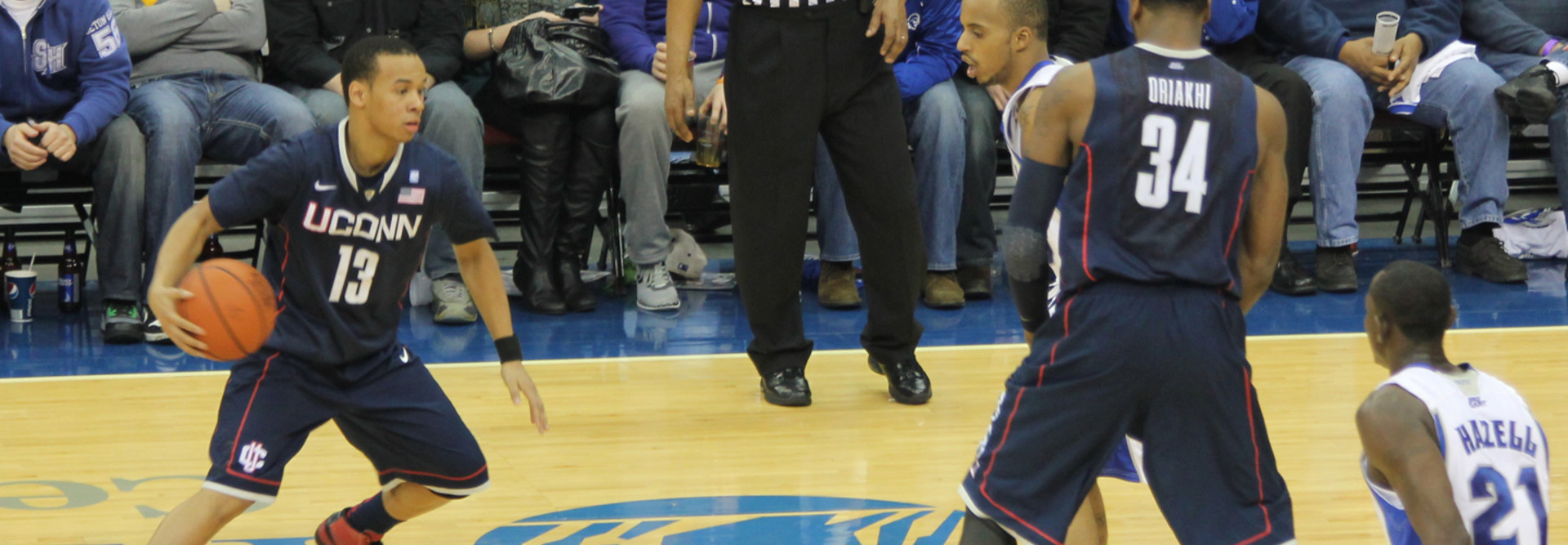March Madness Data Experts Say Rebounds and Shabazz Are Key Ingredients to Victory
This year’s March Madness has been a bit of a doozy, even by college basketball’s typically unpredictable standards. Only 0.17 percent of fans who filled out brackets on ESPN had theirs intact after the first 16 games, according to a report from ABC News.
That means the few and the proud who predicted the final showdown between the University of Kentucky and the University of Connecticut defied overwhelming odds to claim victory. What helped these two teams edge out the competition?
Rebounds did the trick for the University of Kentucky while Shabazz Napier sealed the deal for UConn, said Ethan Cooperson, a senior research analyst from STATS, in a Reddit Q&A sponsored by CDW.
“Rebounding has been a big key, at least for Kentucky. The Wildcats entered the tournament second in the nation in rebound margin per game (+9.8), and have ridden a similar advantage (+9.0 per game) to five tournament wins,” he said. “Connecticut's success wasn't so easy to foresee, unless you account for the possibility that a single player can carry his team. Shabazz Napier averaged 17.4 points per game prior to the tournament, and has increased that figure to 21.0 points per game in the tournament.”
This is the second Q&A that STATS has hosted on Reddit in support of March Madness, and once again, ESPN analyst and former NBA star Jay Williams took part in the discussion.
He echoed Cooperson’s statement about rebounds being the key data point to watch in determining which team would emerge victorious.
“UK rebounds 42 percent of their missed shots, which ranks 1st in the country,” Williams said.
In the end, the Shabazz factor sealed the deal as UConn beat the University of Kentucky 60-54 in the 2014 NCAA national championship game.
“We guessed that a single player might carry his team to Tournament success. UConn is in the title game with Shabazz Napier looking a lot like Kemba Walker of 2011,” said Cooperson.
March Madness Statistical Questions Answered
BizTech had the opportunity to ask the STATS team a few questions about data analytics and its ability predict winners in March Madness games. Here’s what the data gurus at STATS had to say about sports, data and the sweet taste of victory.
BIZTECH: What are the most common mistakes people make when filling out their brackets that they wouldn't make if they paid attention to the data?
STATS: There are a lot, but the most common are picking a team because they are familiar, because they are the bigger name, because they have more basketball tradition, or because they have the bigger-name coach.
BIZTECH: Are there any consistent trends in the way winners and losers shake out during March Madness? If so, what are they?
STATS: It’s not necessarily prudent to look for a single formula for success. Some teams win on the strength of an individual player’s excellence. Some teams win with great balance. Some teams win by making a slew of three-pointers; some teams, by playing great defense. And some teams, in the course of single tournament, will win games via different strategies.
In last year’s tournament, Louisville in its first four games made only 15 three-pointers, hitting them at a 29.4-percent clip. In two games at the Final Four, the Cardinals totaled 17 three-pointers, hitting them at a 41.7-percent clip. The art of winning games in different ways might be critical to a team’s chances of making a deep run in the tournament.
BIZTECH: Can data successfully predict an upset in the tournament?
STATS: Last year, New Mexico had a 47.8 field goal percentage in its last five games entering the tournament. In the Lobos’ loss to Harvard in the tournament, they managed only 37.5-percent field-goal accuracy and Harvard overall last season ranked only in the middle of the pack in the Ivy League in field-goal defense. It’s only one game, but it indicates that an upset really can come out of nowhere. Maybe Butler’s 2011 run was somewhat predictable after the team went to the 2010 championship game, but conversely, VCU failed to reach the Tournament’s second weekend in the two years after its Final Four run. Predicting upsets and Cinderella performances certainly isn’t easy!
BIZTECH: What is the probability of someone filling out a 100 percent accurate bracket?
STATS: The odds of a perfect bracket, if every game is 50-50, is 9 quintillion to one — that's a 9 with 18 zeros after it. It’s probably easier to win the lottery, since that doesn't involve predicting human behavior. We can increase the odds via stats to predict games, but perfect is nearly impossible.









